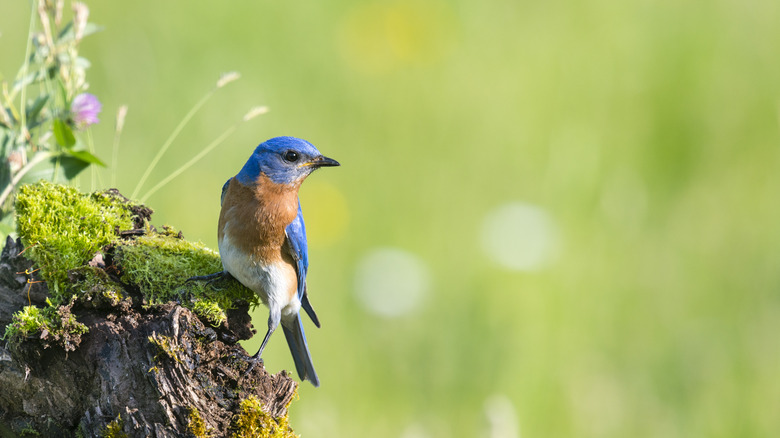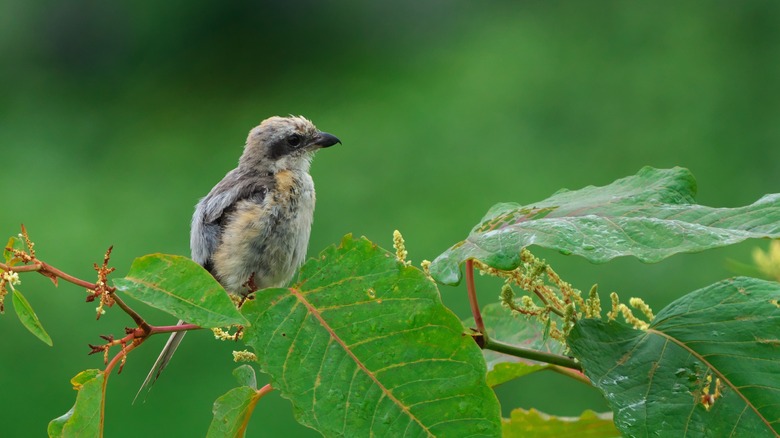The Invasive Weed Birds Love But Will Wreak Havoc On Your Garden
Did you know that there's a popular plant native to eastern Asia that's also regarded as an invasive weed in North Carolina, Michigan, Pennsylvania, California, Indiana, and many other states? While this plant is a drawcard for many bird species thanks to its nectar-filled flowers, it will wreak havoc by spreading around your garden and crowding out other plants. Known as Japanese knotweed (Reynoutria japonica), this species should not be grown in your garden. Listed as an invasive plant by IPSAWG, it has a high risk of escaping into natural areas such as riverbanks, wetlands, and along roadways, and a medium risk of ecological impact. Plus, it can be difficult to control once it becomes established. In fact, this is just one of several invasive plants you should never grow in your garden.
Birds love this invasive weed because it flowers over a long period of time, and the blooms are filled with nectar and pollen. It also has a dense growth habit, which provides shelter and protected nesting sites for many different bird species, and attracts a variety of insects that are a good food source for nesting birds who feed insects to their young. But the benefits this weed provides in attracting birds are far outweighed by the invasiveness of this species. If you find it growing in your yard, you should eradicate it as much as you can, and grow more suitable native plants that will keep the birds happy without ruining your garden.
How to eradicate Japanese knotweed and what to plant instead
Getting rid of Japanese knotweed can be difficult because the plant mainly spreads through its root system or its underground rhizomes. Therefore, even if you dig it up, unless you remove all the rhizomes from the soil, those that remain will continue to grow. So, eradication is a two-step process that will involve removing the initial weeds, either by using mechanical methods, or applying a herbicide, and then follow up maintenance the next season as new plants sprout from the soil. This means you're going to have to be vigilant for a number of seasons in order to eliminate any new weeds that will continue to crop up. According to the Michigan Department of Natural Resource, the most effective way to get rid of Japanese knotweed is to use a combination of mechanical and chemical controls. But if you don't want to use herbicides in your garden, there are other effective methods to kill Japanese knotweed that you might want to try.
Some native alternatives you might like to grow instead to attract birds to your garden include Alderleaf clethra (Clethra alnifolia), Virginia willow (Itea virginica), Arrowwood viburnum (Viburnum dentatum), New England aster (Symphyotrichum novae-angliae), False indigo (Baptisia australis), and Sweet joe-pye weed (Eutrochium purpureum). All of these species produce nectar-filled flowers and seeds that any birds visiting your yard will adore. Of these, Virginia willow is also one of several gorgeous flowering shrubs that will thrive in the shade.

